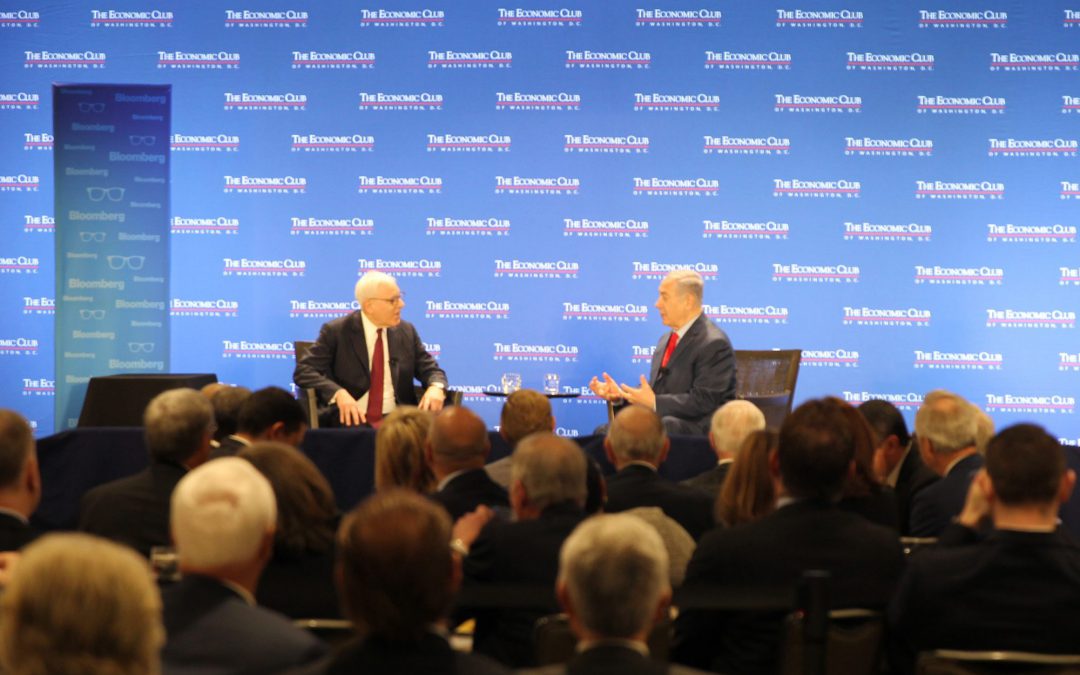WASHINGTON – Israeli Prime Minister Benjamin Netanyahu denounced Iran as the greatest threat to Israel and peace in the Middle East during his U.S. visit Wednesday.
“You should not enable this aggressive regime out to conquer the Middle East, out to impose its Shiite version of militant Islam on the world, to have nuclear weapons,” Netanyahu said at a breakfast at the Economic Club, addressing the controversial U.S. Iran Deal.
In recent weeks, Israel and the Iranian-backed Hezbollah, which controls the Lebanese and Syrian southern borders with the Jewish state, have inched closer to war with one another. Last month, the Israeli air force shot down an Iranian drone in its airspace.
“That was a direct, overt conflict between Israel and Iran, which is quite dramatic,” said Natan Sachs, the director of the Center for Middle East Policy at the Brookings Institution.
After the Iranian drone was shot down, the Israeli air force bombed positions in Syria held by Iranian-backed forces. An Israeli jet was shot down in the skirmish.
The escalating conflict has raised concerns that Israel and Hezbollah could begin an outright war like in 2006. However, Sachs downplayed how soon that could come, saying it was likely within the next few years.
“I don’t think necessarily all-out war is the only possible outcome, but we are certainly seeing a dramatic change of the security situation across the Israeli border, and so that naturally destabilizes things quite dramatically,” Sachs said.
One scenario he said might trigger a larger conflict would be if Hezbollah were to develop military technology that would disrupt the balance of power. “That would create an incentive for Israel to try and stop that before it happened,” Sachs said. “That would be a serious threat to the Israeli population and in general to Israel.”
The terrorist organization and the Assad regime in Syria serve as proxies for Iran, while Russia supports both the current Syrian regime and Iran.
“The Iranian camp, the Assad-Russia-Iran-Hezbollah camp has mostly won in the Syrian civil war in the main population centers,” Sachs said. “And Iran is now, as a consequence of that, establishing permanent military presence in Syria, and that worries the Israelis tremendously.”
Meanwhile, U.S. President Donald Trump faces a May deadline to decide whether to reinstate sanctions against Iran, which were lifted during the Obama administration in order to thaw relations between the U.S. and Iran. Netanyahu said he and Trump spoke about the sanctions during their meeting at the White House on Monday.
“I said, ‘Look, you either fully fix this deal, or you fully nix it,’ because right now, it’s a highway with international approval for Iran to get to massive, unlimited enrichment within a few years,” Netanyahu said.
“You don’t want the preeminent terrorist-sponsoring regime in the world to have nuclear weapons and the means to deliver them to Washington, D.C. Don’t let it happen,” Netanyahu said

